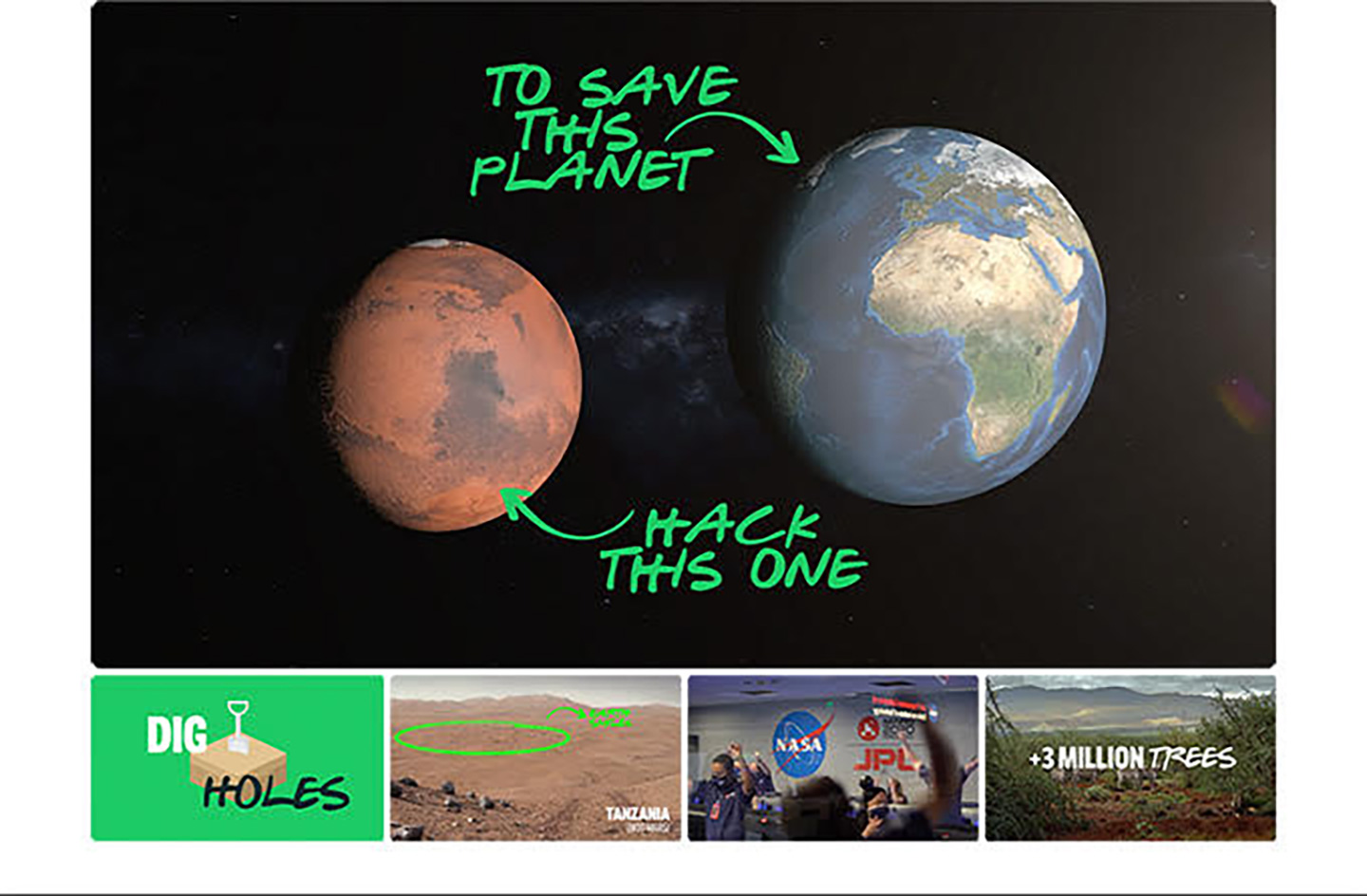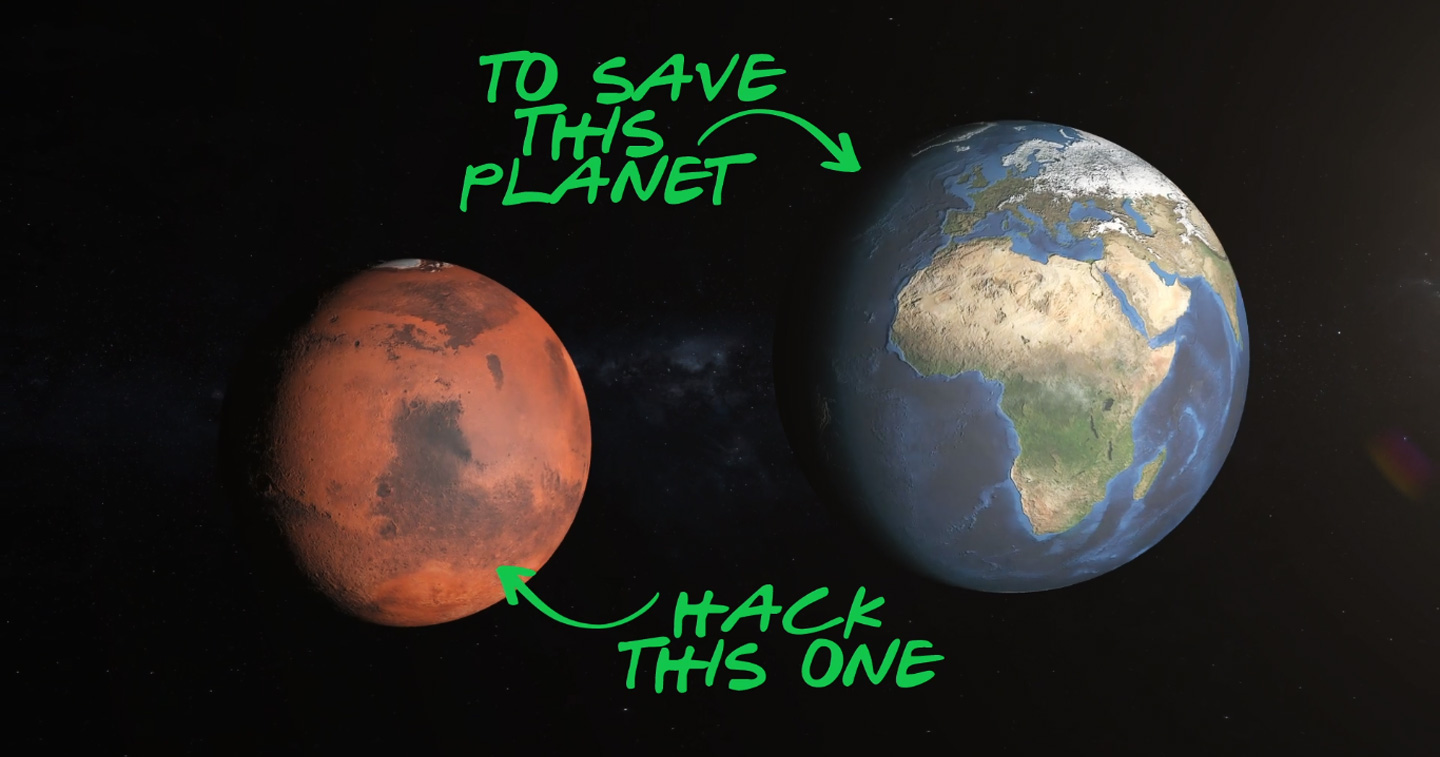MANILA, PHILIPPINES — At a time when urgent intervention is needed to save the earth, it should be obvious that efforts should be channeled into saving this planet. And Justdiggit found a simple but practical solution: digging. The small NGO digs up holes (called “Earth smiles”) in barren lands, fills them with water to hold up, and the vegetation that brings forth increases the humidity in the area and causes a drop in temperature.
Unfortunately, what could be a great initiative with the potential to combat global warming when applied on a large scale didn’t get the attention it deserved. In part, because the public was setting their sights on a different planet instead — Mars.
So, to redirect this fixation on the expedition to Mars, Justdiggit decided to hack the event.
After the Perseverance landed on Mars, they started spreading a visual of their latest photoshoot — a Justdiggit site in Tanzania that looked exactly like Mars. And it didn’t take long until it blew up.
The internet — from small forums to huge influencers — started talking about the photos, with many of these people believing it to be true and saying that the earth smiles were a clear sign that life is possible on the Red Planet. #LifeOnMars got that #1 trending topic spot in no time.

So, after it went viral, Justdiggit revealed the truth: The photo of the promising land is not on Mars; it’s on Earth. Accompanying the reveal was a photo of the pictured Tanzanian land now: lush with vegetation and no longer barren. The message was “Mars can wait, but Earth cannot,” emphasizing how hope is not lost and that there’s still so much work that can be done here before shifting the focus entirely to Mars.
Since the campaign’s success, Justdiggit reached global fame, was invited to speak at COP 26, was asked to participate in UN’s ecosystem movement, and has dug 200,000 earth smiles, regenerating over three million trees.










